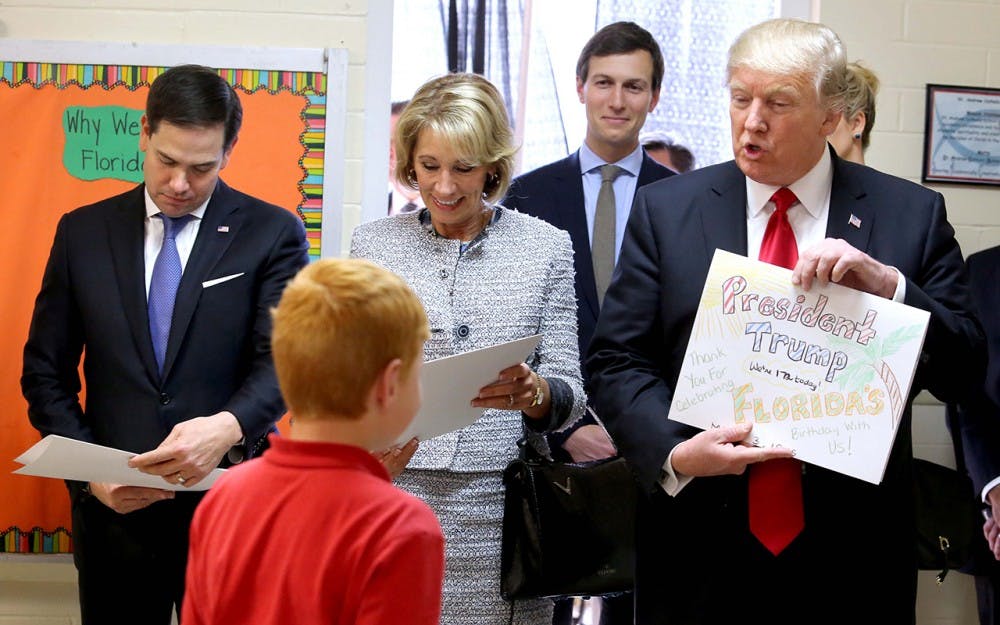Throughout President Trump’s campaign, he seldom addressed his plans for higher education. Since his inauguration, that trend has continued and been shared by Secretary of Education Betsy DeVos.
Trump and DeVos have not been specific about their plans for higher education; however, DeVos said her views on policy align with Trump’s, which include the belief that four-year universities are not benefiting students as they should be.
“For too long a college degree has been pushed as the only avenue for a better life. The old and expensive brick-mortar-and-ivy model is not the only one that will lead to a prosperous future,” DeVos said to the United States Senate’s education committee at a hearing Jan. 17.
In DeVos’ first higher education address as Secretary of Education, she said Trump’s plan for the first 100 days noted the importance of community colleges because they provide students with options for post-secondary education.
“This plan notes the importance of expanding vocational and technical education, the types of career and technical education that community colleges excel at providing,” she said.
Victor Borden, a professor of educational leadership and policy studies, said he agrees post-secondary education degrees are not for everyone, but said they continue to serve an important role in preparing people for work and life.
He said higher education provides people with many benefits, such as higher income, better health and greater community engagement.
There are initiatives to expand post-secondary credentials beyond traditional degrees, such as an associate’s, bachelor’s, master’s and doctorate to post-secondary credentials from vocational schools.
“Many jobs that did not require advanced training now do require it as the level of technology and complexity of such jobs continues to grow,” Borden said.
During Trump’s first substantive speech on higher education at a rally in Columbus, Ohio, in October, he focused on his plan to lower the cost of post-secondary education.
He proposed an income-based plan for borrowers who are paying back federal student loans.
He suggested the amount borrowers pay back per month would be capped at 12.5 percent of their income, compared to the Obama administration’s 10-percent cap.
He also advocated all outstanding debt be forgiven after 15 years of steady repayment, compared to the Obama administration’s 20 years.
Trump denounced government regulations contributing to administrative bloat and said he would review tax-exempt endowments, so the benefits could be passed on to students.
“Some schools are paying more to hedge funds and private-equity managers than they are spending on tuition and tuition assistance, while taxpayers are guaranteeing hundreds of billions of dollars of student loans to pay for rising tuition costs,” Trump said. “We want universities to spend their endowments on their students, not themselves.”
However, Borden said he is involved with multiple agencies responsible for implementing compliance requirements and has seen various efforts to make compliance more efficient.
“I would love to see more intelligent compliance, but I also know it will be a very complicated and politically charged task to decide which types of compliance and regulations to pull back on,” Borden said.
Borden said he’s sure Trump’s administration will decrease administrative bloat in small ways.
However, considering how multifaceted and far spread compliance requirements are, he said it’s difficult to imagine Trump’s administration significantly decreasing administrative bloat.
Borden said he’ll believe it when he sees it.






